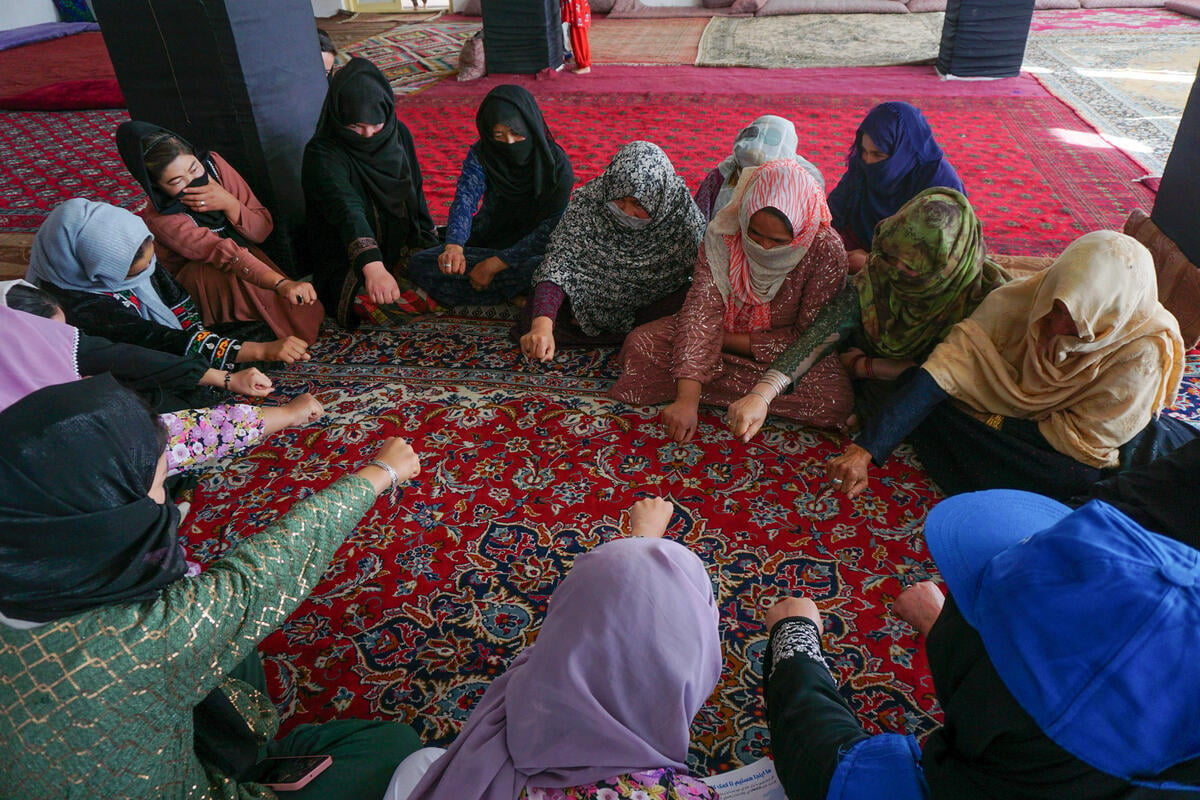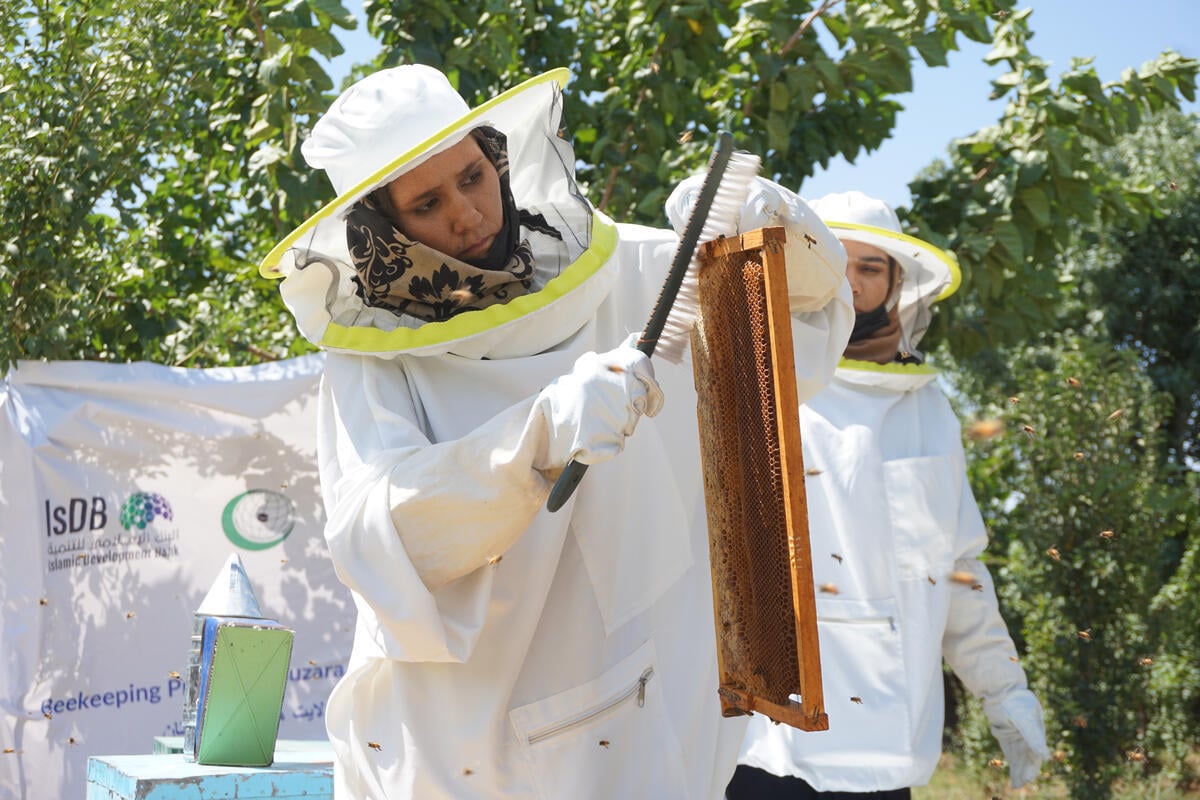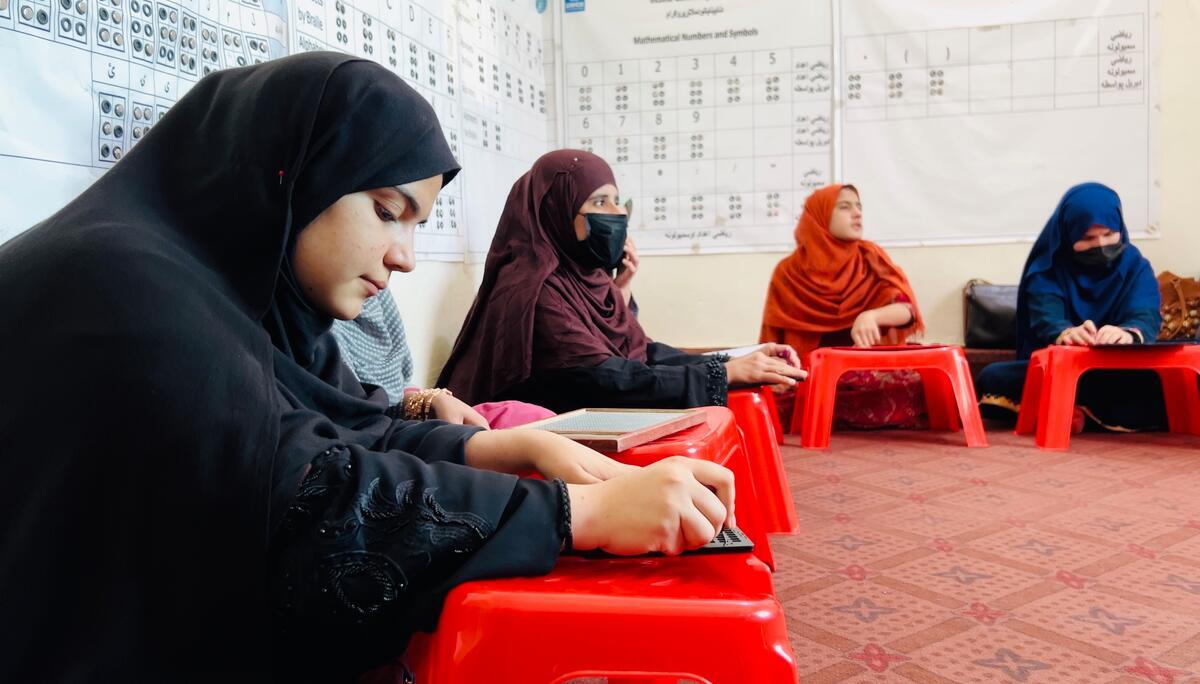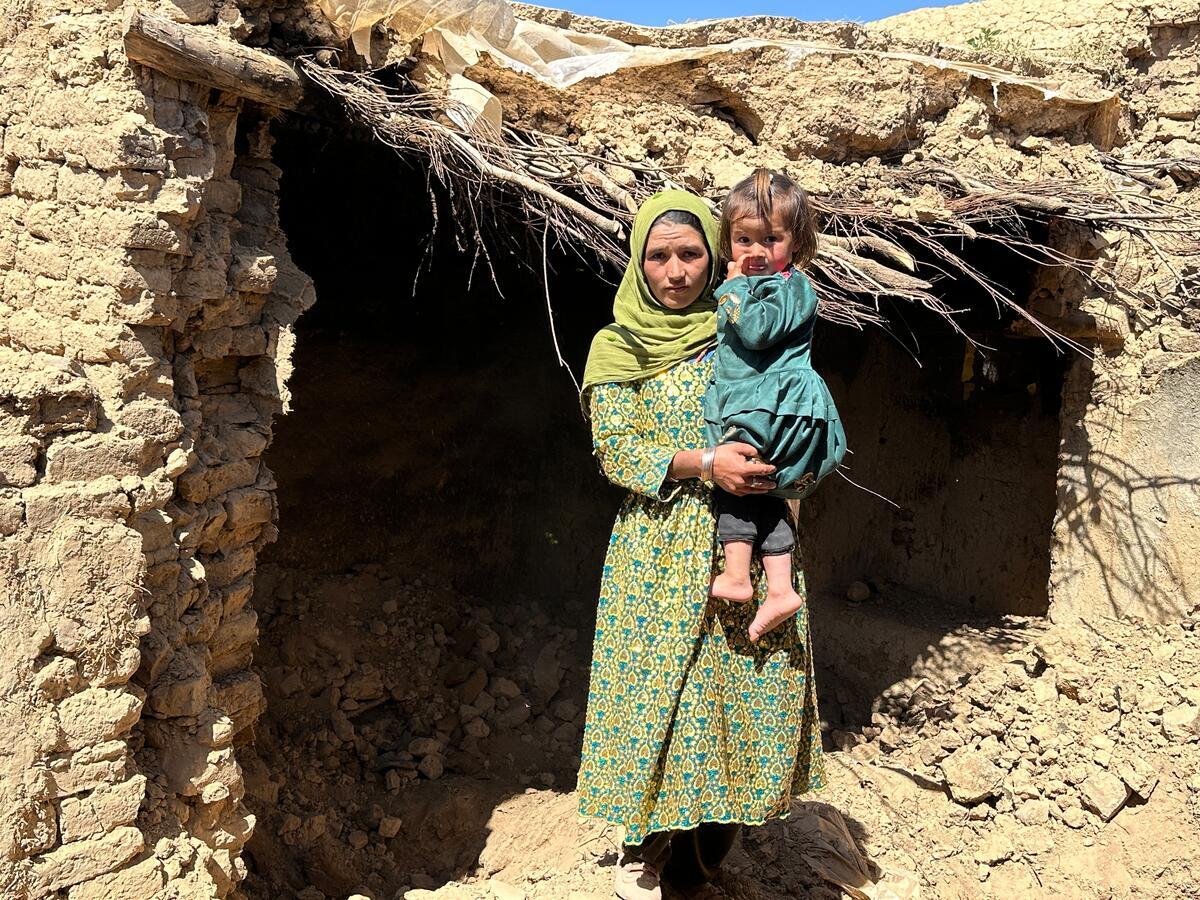Relocation of Afghans from border area continues
Relocation of Afghans from border area continues

CHAMAN, Pakistan, July 14 (UNHCR) - Nazar Mohammad, an asylum seeker from Afghanistan's Uruzgan province, stood alone at one corner of the Chaman "waiting area" watching trucks leave in the early hours of the morning. He was in the last movement of Afghans from the makeshift camp on the border to the shelter of a refugee camp deeper inside Pakistan.
"The days spent at the 'waiting area' were days that we spent fighting for survival," said Mohammad, who spent 16 months stranded with his two wives and 11 children at the zone just inside the Pakistani border.
When the last convoy of 15 trucks carried 386 Afghans to the Mohammad Kheil refugee camp on 12 July, the UN refugee agency (UNHCR) had relocated all residents of the "waiting area" who asked to move to that camp.
Only some of those wanting to move to the new settlement of Zhare Dasht for internally displaced persons near the southern Afghanistan city of Kandahar - now fewer than 4,000 people - remain to be moved in the next two weeks before the camp is completely closed.
The "waiting area" became a makeshift camp when Pakistan stopped admitting Afghans who had fled the 2001 war that toppled the Taliban government. It had a population of around 26,000 before UNHCR relocated 7,000 Afghans to Zhare Dasht, near Kandahar, last September.
Mohammad said he decided to be relocated to Mohammad Kheil instead of Zhare Dasht for security.
"My family is not very sure about the recent developments in Afghanistan. We have been hearing and reading that normality has returned even to our places of origin in the north, but I don't have much confidence that this will prevail. If it does, we will decide to leave Pakistan after some time," said Mohammad.
The decision to close the "waiting area" by mid-July was taken jointly by the governments of Pakistan and Afghanistan, and UNHCR on May 14.
Since then, 8,102 Afghans opted be moved inside Pakistan as refugees. Nearly 11,000 registered to be relocated to Zhare Dasht in Afghanistan, but they refused to go back to their original homes, at least for now. Only eight families, 32 individuals, took the option of returning to their actual places of origin inside Afghanistan.
Gaytrie Ammersing, a UNHCR field officer, said the relocations to Zhare Dasht would likely be complete by the last week of July since UNHCR is relocating 150 families per day, five days a week.
"We are pleased that the relocation for Mohammad Kheil has ended without any hindrance," she said. She praised the help of Pakistani authorities and non-governmental organisations.
"Out of the 8,102 Afghans who registered from the 'waiting area' for Mohammad Kheil only 277 did not show up for move. They might have changed their mind, opting for relocation to Zhare Dasht, as they had the right to change their choice," she said.
In the meantime, Pakistani authorities have started demolishing the mud structures built in the "waiting area." Project Director Miro Khan from the office of Balochistan's Commissioner for Afghan Refugees said the authorities made sure houses were empty and that UNHCR verified the occupants had left before any demolition.
"With the closure of the Chaman 'waiting area' expected in a couple of weeks, we can take a sigh of relief. The camp being right at the top of the border was a security concern for the Pakistan and Afghan governments," said Khan.
As the last convoy left for Mohammad Kheil, Akhtar Mohammad was waiting for his move to Zhare Dasht. "I know it's still displacement in both ways, either choosing to go to Mohammad Kheil or going to Zhare Dasht. But I prefer being on my own soil rather than in Pakistan."








